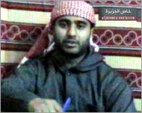By Murad Qureshi
Tribune, 21 October 2005
Among the stalls at this summer’s Camden Bangladesh Mela in London’s Regent’s Park, I came across one run – rather sheepishly – by Hizb ut-Tahrir. This is an Islamist political party that the Government is now proposing to ban. I found myself involved in an argument with them.
This is a battle of ideas that my family has been fighting for many years. In 1947 at the time of the partition of India my grandfather argued against the creation of religious states. Now it was my turn to argue against a cult that believes voting is haram, an act of disbelief, and that the return of the khalifah – an Islamic state headed by the caliph, the “successor” to the prophet Muhammad – is the only answer to every problem faced by Muslims in the modern world.
How can voting be an act of disbelief? Those such as members of Hizb ut-Tahrir, who insist that it is, claim it means participating in a democratic system that upholds the will of man over the will of Allah. For them, Islamic government is “God’s rule” and they reject democracy as “people’s rule”. They look to the political system established in seventh-century Mecca after the death of the prophet as the model that Muslims should aspire to and seek to recreate.
However, while Muslims regard the period of rule under the “rightly-guided caliphs” in idealised terms, as the best that human endeavours can achieve, it was also a period of dissent, rebellions and wars. Let us not forget that three of the four caliphs who succeeded the prophet were murdered.
Organisations like Hizb ut-Tahrir which forget this historical context are similar to those religious classes on the Qur’an where the sole emphasis is on the rote learning of Arabic letters. It is a method that leads to closed minds.
The formula that the only solution to the Muslim world’s problems is a return to the early days of Islam living under just rule through the khilafa state is of no help to Muslims confronted by the problems of today. The issues of contemporary politics are too complex to be simplified in this manner.
Even in the case of Muslim-majority countries, Hizb is vague about how existing nation states can be persuaded to cede power to their proposed supra-national khilafa state. Its programme is even more abstract in the UK, where Muslims are a small minority and prospects for the establishment of an Islamic state are non-existent.
Therefore, in practice, Hizb operates as a sect, making propaganda in order to recruit Muslims to their ideas so they can make more propaganda in order to win further recruits. Members are encouraged to turn their backs on mainstream politics in Britain and to reject the struggle for realistic reforms that will improve the lives of British Muslims.
Continue reading →

 Nasreen Suleaman examines the background of 7/7 bomber Mohammed Sidique Khan. It knocks on the head those ignorant theories, emanating from both the Right and the “Left”, that multiculturalism resulted in segregration which then led to the adoption of the extremist views that produced the London bombings.
Nasreen Suleaman examines the background of 7/7 bomber Mohammed Sidique Khan. It knocks on the head those ignorant theories, emanating from both the Right and the “Left”, that multiculturalism resulted in segregration which then led to the adoption of the extremist views that produced the London bombings. Lee Jasper replies to the chair of the Commission for Racial Equality: “Asked whether the word multiculturalism should be killed off, he replied: ‘Yes, let’s do that. Multiculturalism suggests separateness.’ Confronted by the Spectator‘s Rod Liddle and asked if Islam was an issue for the CRE – in particular if it was ‘merely a matter of culture’ rather than race – Phillips’s response spoke volumes. ‘Well privately I would go quite a long way down the route you’re taking. It is not primarily an issue of race.’ … But the truth is that vile anti-Muslim prejudice, using the religion of a community to attempt to sideline and blame it for many of society’s ills, is the cutting edge of racism in British society. Those who consider themselves anti-racists need to wake up to this fact.”
Lee Jasper replies to the chair of the Commission for Racial Equality: “Asked whether the word multiculturalism should be killed off, he replied: ‘Yes, let’s do that. Multiculturalism suggests separateness.’ Confronted by the Spectator‘s Rod Liddle and asked if Islam was an issue for the CRE – in particular if it was ‘merely a matter of culture’ rather than race – Phillips’s response spoke volumes. ‘Well privately I would go quite a long way down the route you’re taking. It is not primarily an issue of race.’ … But the truth is that vile anti-Muslim prejudice, using the religion of a community to attempt to sideline and blame it for many of society’s ills, is the cutting edge of racism in British society. Those who consider themselves anti-racists need to wake up to this fact.”